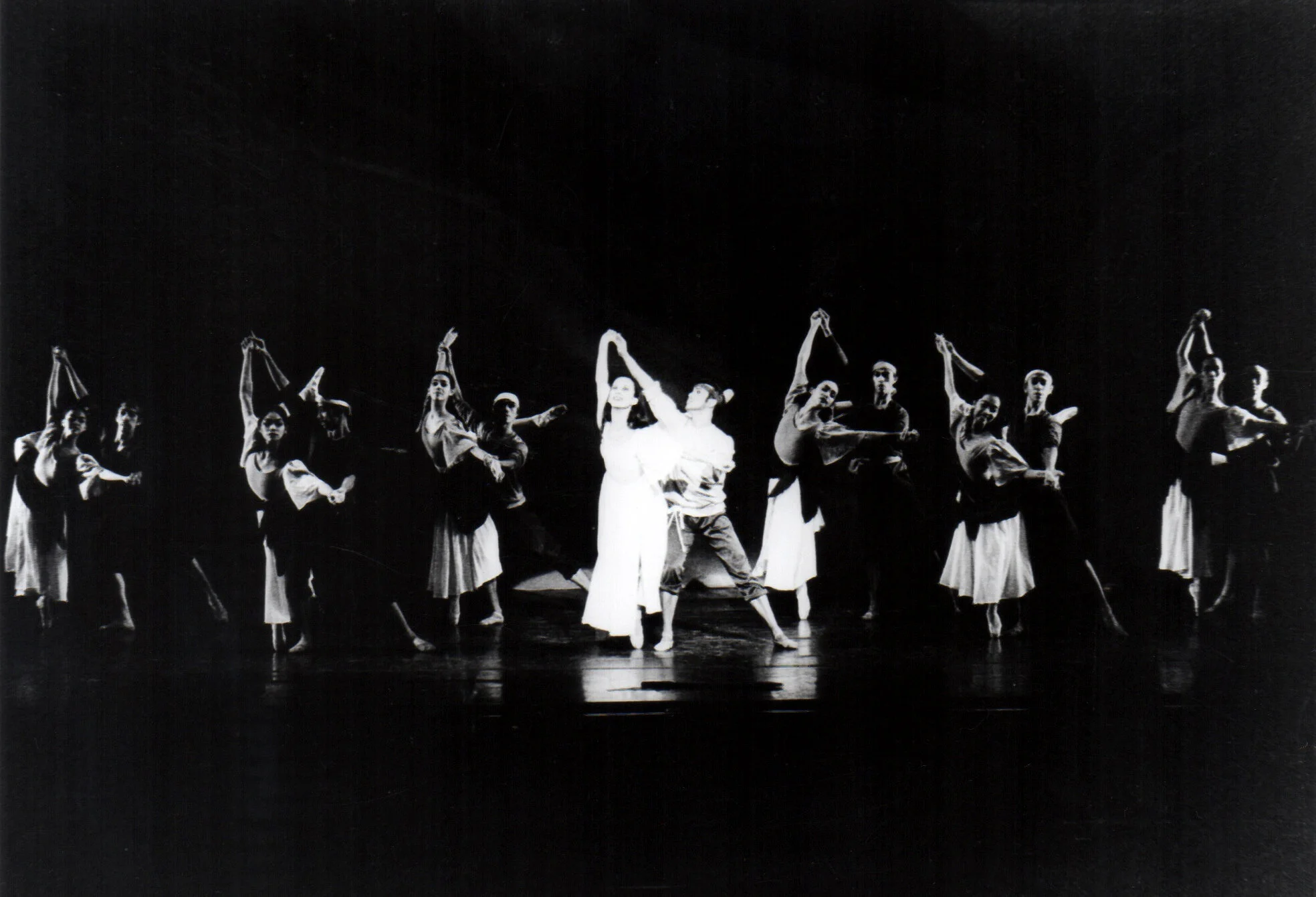Choreography in Focus: Gabriela ng Vigan by Osias Barroso
Gabriela ng Vigan tells the story of Filipino revolutionary leader Gabriela Silang, with libretto by Eric V. Cruz and choreography by Osias Barroso.
One of Osias Barroso’s earliest assignments as a choreographer was also among the most challenging. That’s how Ballet Manila’s co-artistic director characterizes making Gabriela ng Vigan, a commissioned piece revolving on real-life Filipino heroine Gabriela Silang, back in 1996.
Gabriela Silang (Lisa Macuja) in a confrontation scene with the Spanish Soldier (Andrei Katuntsev)
“When Ballet Manila was just beginning, I choreographed because of necessity,” he laughingly discloses. As a touring company of just twelve dancers with meager resources, multi-tasking was the order of the day. Thus, aside from being its principal artist (along with now artistic director Lisa Macuja-Elizalde), Barroso found himself flexing his muscle to create new pieces for the company.
Being historical in nature, Gabriela ng Vigan required research that would serve as basis for the story in dance. Barroso describes the resulting piece as a free interpretation in dance-drama, with libretto by then Ballet Manila artistic director Eric V.Cruz. It was also Cruz who suggested the use of music by Gustav Holst which, Barroso says, he found quite appropriate and exactly what he needed.
The dance-drama begins with a flashback to days when Gabriela Silang (Lisa Macuja) and Diego Silang (Osias Barroso) were still together.
The souvenir program of Gabriela ng Vigan, which had its world premiere in April 1996 in Intramuros
In essence, Gabriela ng Vigan focuses on the title character’s struggles as the wife of Diego Silang, her takeover as the supreme leader of the revolutionary force after her husband’s assassination by comrade Miguel Vicos, her capture, and finally, her execution in Vigan on September 20, 1763.
Since they could only have a minimal cast, the piece is anchored by four main characters – Gabriela Silang (Lisa Macuja), Diego Silang (Osias Barroso), Spanish Soldier (Andrei Katuntsev, a Russian who was BM’s first resident artist) and Miguel Vicos (Jeffrey Espejo). Again, because of the limited number of dancers, Barroso would also portray one of the townspeople.
Gabriela ng Vigan had its world premiere on April 19, 1996 (with another show on the 20th) at the Puerta Real Gardens as part of Intramuros Evenings, a project of the Intramuros Administration. Having the setting in the walled city which dates back to Spanish colonial times gave the performance added meaning. Barroso recalls that they performed by the lake in the venue which also made it memorable for him.
In 1998, during the celebration of the Philippine Centennial, Ballet Manila was able to perform Gabriela ng Vigan once again with Melanie Motus and Pamela Asprer sharing the lead role.
Though it’s an intense and sad story, Barroso hopes that they were able to give justice to Gabriela Silang as a symbol of bravery and an inspiration to women in the present day.
Melanie Motus takes on the title role when Gabriela ng Vigan is performed again in 1998 to celebrate the Philippine Centennial.
Images from the Ballet Manila Print Archives






